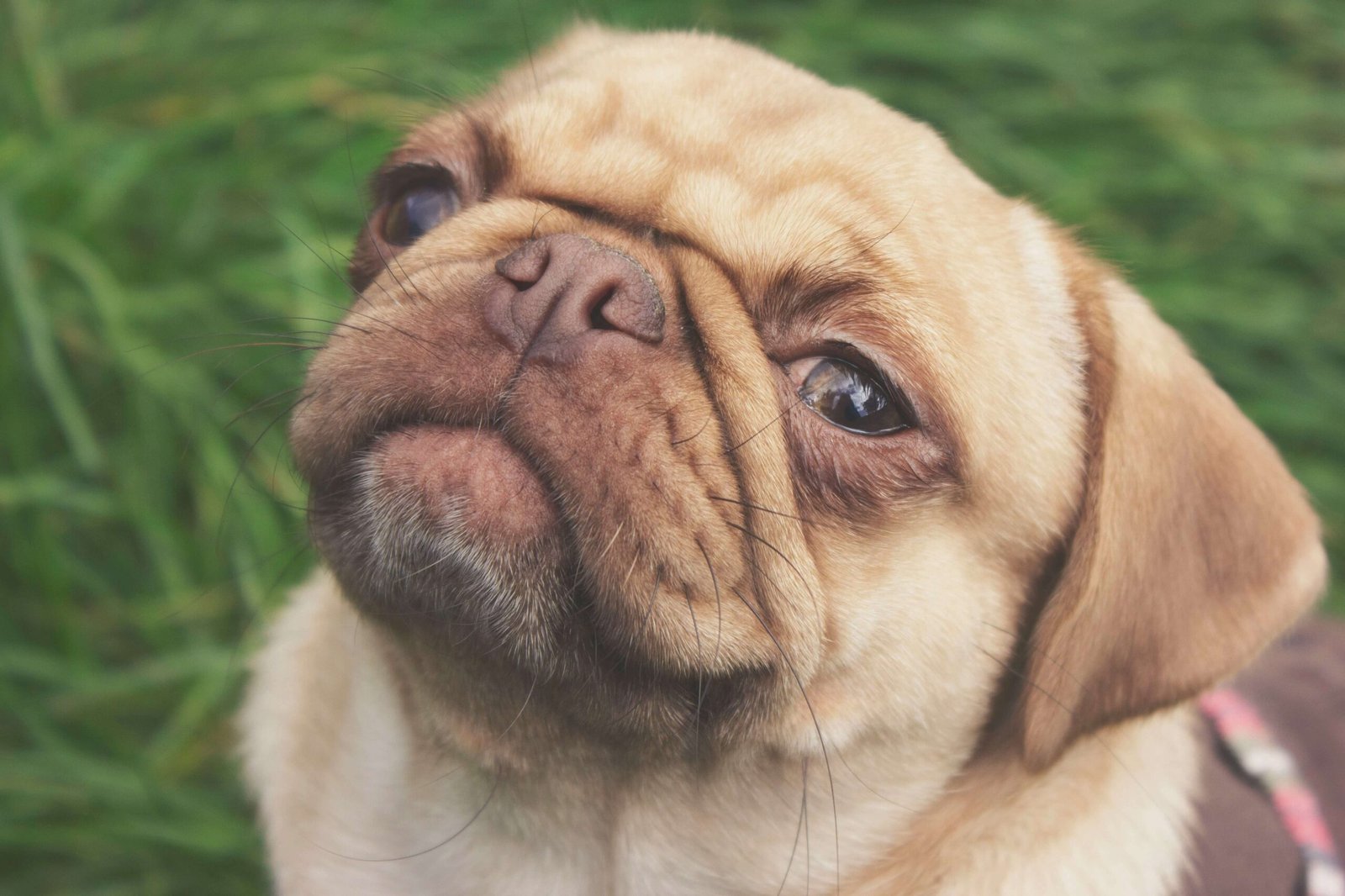Understanding Dog Pooping in Sleep
If you’ve ever woken up to find that your dog has pooped in their sleep, you’re likely feeling a mix of concern and confusion. While it may seem unusual or alarming, this behavior can occur for a variety of reasons. From medical conditions to behavioral triggers, understanding why your dog might poop during sleep is the first step toward addressing the issue. In this blog post, we’ll explore the potential causes, signs to watch for, and what you can do to help your furry friend. Whether you’re dealing with a puppy or an older dog, this guide will provide you with actionable insights to ensure your dog stays healthy and comfortable.
Common Causes of Dog Pooping in Sleep
There are several reasons why a dog might poop while sleeping. Identifying the root cause is essential for finding the right solution. Here are some common explanations:
Medical Conditions : Issues like gastrointestinal disorders or infections can lead to loss of bowel control.
Dietary Changes : Sudden changes in food or feeding schedules can upset your dog’s digestive system.
Parasites : Intestinal parasites such as worms can disrupt normal bowel function.
Age-Related Factors : Older dogs may experience incontinence due to weakening muscles or declining health.
Stress or Anxiety : Emotional distress can sometimes manifest in unexpected ways, including accidents during sleep.
Understanding these potential causes can help you determine whether the issue is behavioral, environmental, or medical in nature.
Signs That Your Dog May Have a Problem
While pooping in sleep is itself a sign of an issue, there are other symptoms that may accompany this behavior. Here’s what to look out for:
Frequent Accidents : If your dog is having accidents more often, even when awake, it could indicate a deeper problem.
Changes in Stool Consistency : Diarrhea or unusually soft stools may suggest dietary or digestive issues.
Lethargy or Weakness : A lack of energy or difficulty moving could point to underlying health concerns.
Loss of Appetite : Refusing to eat or showing disinterest in food is a red flag for many conditions.
Excessive Licking or Scooting : These behaviors may indicate discomfort or irritation in the anal area.
Recognizing these signs early can help you address the issue before it worsens, ensuring your dog gets the care they need.
Check this guide 👉Jelly Mucus in Dog Poop: Best 7 Expert Tips!
Check this guide 👉Yellow Mucus in Dog Poop: Best 7 Expert Tips!
Check this guide 👉Why Does Dog Poop Turn White? Best 7 Expert Tips!

Potential Causes | Associated Symptoms |
|---|---|
Gastrointestinal Disorders | Frequent accidents, diarrhea |
Dietary Changes | Changes in stool consistency, gas |
Parasites | Weight loss, bloating, scooting |
Age-Related Incontinence | Weakness, lethargy |
Stress or Anxiety | Restlessness, excessive licking |
How to Address Dog Pooping in Sleep
Once you’ve identified potential causes, you can take steps to address the issue. Here are some practical solutions to consider:
Consult a Veterinarian : A professional evaluation is crucial to rule out medical conditions and parasites.
Adjust Diet : Gradually transition to a balanced diet and avoid sudden changes in food or portion sizes.
Establish a Routine : Set consistent feeding and potty times to regulate your dog’s digestive system.
Provide Comfort : Ensure your dog has a calm, stress-free environment to reduce anxiety-related accidents.
Monitor Hydration : Make sure your dog has access to clean water to support healthy digestion.
By taking these steps, you can help your dog regain control and prevent future incidents.
Tips for Preventing Future Incidents
Prevention is key to ensuring your dog doesn’t experience recurring episodes of pooping in sleep. Here are some tips to help you stay proactive:
Regular Vet Checkups : Schedule routine visits to catch potential issues early and maintain your dog’s overall health.
Exercise Regularly : Physical activity helps regulate digestion and reduces stress.
Avoid Late-Night Feeding : Feeding your dog too close to bedtime can increase the likelihood of accidents.
Use Protective Bedding : Waterproof or absorbent bedding can make cleanup easier and protect your furniture.
Train and Reinforce : Positive reinforcement training can help reinforce good bathroom habits and reduce anxiety.
By implementing these strategies, you can create a supportive environment that minimizes the risk of future incidents.
Behavioral Triggers for Pooping in Sleep
Sometimes, the root cause of a dog pooping in their sleep isn’t medical but behavioral. Understanding these triggers can help you address the issue effectively. Here are some common behavioral factors:
Anxiety or Fear : Loud noises, changes in routine, or unfamiliar environments can trigger stress-related accidents.
Overstimulation Before Bed : Playing vigorously or engaging in high-energy activities right before bed can disrupt sleep patterns.
Separation Anxiety : Dogs left alone for long periods may experience emotional distress that manifests in unusual behaviors.
Lack of Potty Training : Inconsistent training can lead to confusion about when and where it’s appropriate to relieve themselves.
Sleep Disorders : Conditions like REM behavior disorder can cause dogs to act out physically during sleep.
By addressing these behavioral triggers, you can create a calmer environment that reduces the likelihood of accidents during sleep.
How to Clean Up After an Accident
Cleaning up after your dog has an accident is an important part of managing the situation. Proper cleanup ensures hygiene and prevents your dog from being drawn back to the same spot. Here’s how to handle it effectively:
Act Quickly : Clean the area as soon as possible to prevent stains and odors from setting in.
Use Enzyme-Based Cleaners : These break down organic matter and eliminate lingering smells that might attract your dog.
Avoid Harsh Chemicals : Strong cleaners can irritate your dog’s sensitive nose and skin.
Wash Bedding Regularly : If the accident occurred on your dog’s bed, wash the bedding with a pet-safe detergent.
Ventilate the Area : Open windows or use fans to air out the space and reduce lingering odors.
Proper cleanup not only keeps your home fresh but also helps discourage repeat incidents in the same location.
When to Seek Professional Help
While many cases of dogs pooping in their sleep can be resolved at home, some situations require professional intervention. Knowing when to seek help ensures your dog gets the care they need. Here’s when to consult an expert:
Persistent Accidents : If the problem continues despite dietary and routine adjustments, it’s time to see a vet.
Signs of Pain or Discomfort : Whining, limping, or reluctance to move could indicate a serious underlying issue.
Sudden Changes in Behavior : Unexplained shifts in your dog’s habits or personality warrant investigation.
Weight Loss or Appetite Changes : These could signal a more severe medical condition requiring immediate attention.
Difficulty Waking Up : If your dog seems disoriented or struggles to wake after an accident, consult a veterinarian promptly.
Seeking professional guidance ensures your dog receives the appropriate care and treatment to address the issue effectively.
Frequently Asked Questions About Dog Pooping in Sleep
Is it normal for a dog to poop in their sleep?
No, it’s not normal and may indicate an underlying issue that needs attention.
Can stress cause a dog to poop in their sleep?
Yes, stress or anxiety can lead to loss of bowel control during sleep.
Should I punish my dog for pooping in their sleep?
No, punishment is ineffective and may increase stress; focus on addressing the root cause instead.
How can I tell if my dog has a parasite?
Look for symptoms like diarrhea, weight loss, bloating, or visible worms in stool.
Can older dogs develop incontinence?
Yes, age-related muscle weakness or health conditions can lead to incontinence in senior dogs.
Supporting Your Dog Through This Challenge
Discovering that your dog has pooped in their sleep can be unsettling, but it’s important to approach the situation with patience and understanding. By identifying the cause, consulting a veterinarian, and making necessary adjustments to their routine and environment, you can help your dog overcome this issue. Remember, your dog relies on you to provide care and comfort during challenging times. With the right approach, you can ensure they remain happy, healthy, and free from discomfort. Together, you’ll navigate this challenge and strengthen the bond you share with your loyal companion.
Do Cats Have Taste Buds? Best 7 Expert Tips! – Discover how cats experience flavors and why their taste is so unique.
Do Dogs Have Taste Buds? Best 7 Expert Tips! – Discover how dogs experience taste, their preferences, and what it means for their diet and health.
Can Cats Taste Sweet? Best 7 Expert Tips! – Discover why cats can’t taste sweetness, how it affects their diet, and tips to keep them healthy and happy.
Can Dogs Taste Sweet? Best 7 Expert Tips! – Discover how dogs perceive sweetness, which foods are safe, and tips to manage their sweet cravings responsibly.





